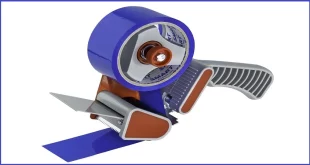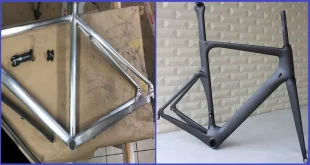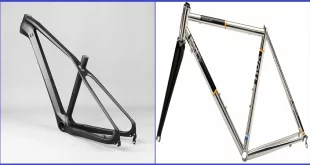Carbon bike frames are generally preferred by riders over aluminum frames due to their lightweight construction and superior vibration damping qualities. Carbon frames offer a more comfortable and smooth riding experience, making them an excellent choice for long-distance rides or races.
Moreover, carbon frames can be molded into various shapes, allowing for greater aerodynamic efficiency. On the other hand, aluminum frames are known for their stiffness and responsiveness, making them ideal for sprinting or climbing. They also tend to be more affordable compared to carbon frames.
Ultimately, the choice between carbon and aluminum frames depends on the rider’s preferences, riding style, and budget.
Weight: Is Lighter Always Better?
Discuss The Weight Advantages Of Carbon Bike Frames
Carbon fiber’s lightweight properties:
- Carbon bike frames are known for their exceptional lightweight properties due to the use of carbon fiber material.
- Carbon fiber is a composite material made up of carbon strands bonded together, resulting in a strong yet incredibly light structure.
- The lightweight nature of carbon frames allows riders to experience improved speed and agility while riding.
- They offer a distinct advantage over aluminum frames in terms of weight, making them a popular choice for avid cyclists.
Impact on speed and acceleration:
- The reduced weight of carbon bike frames directly affects the overall speed and acceleration of a rider.
- Due to their lightweight construction, carbon frames require less effort to pedal, resulting in increased speed and quicker acceleration.
- This weight advantage allows riders to climb hills more efficiently and achieve faster speeds on flat terrain.
- Whether you’re a competitive racer or a recreational cyclist, the decreased weight of a carbon frame can greatly enhance your performance on the road.
Explore The Weight Benefits Of Aluminum Bike Frames
Durability without significant weight gain:
- While carbon frames may excel in terms of weight, aluminum frames offer their own set of advantages for riders.
- Aluminum bike frames are lightweight but also possess impressive durability, making them a reliable choice for various riding styles.
- They are commonly used in mountain biking and touring bikes where durability is crucial on rugged terrains.
- Despite being slightly heavier than carbon frames, aluminum frames provide excellent strength-to-weight ratio, ensuring a balanced and robust riding experience.
Considerations for different riding styles:
- When choosing between carbon and aluminum frames, it’s important to consider your specific riding style.
- Carbon frames excel in road racing and performance-oriented riding, where every gram of weight reduction can make a significant difference.
- On the other hand, aluminum frames are suitable for riders who prioritize durability and are involved in off-road or long-distance touring.
- Ultimately, the decision should be based on your riding preferences, goals, and budget.
Carbon bike frames offer significant weight advantages due to their lightweight carbon fiber composition. This translates into increased speed and acceleration for riders. However, aluminum frames provide durability without a significant weight gain, making them a reliable choice for different riding styles.
Consider your specific needs and preferences when deciding between the two frame materials.
Ride Quality: Finding The Perfect Balance
Analyze The Ride Quality And Comfort Of Carbon Bike Frames
Carbon fiber has revolutionized the cycling industry with its remarkable properties that enhance ride quality and comfort. Let’s dive into the key points:
- Carbon fiber’s ability to dampen vibrations: One of the standout features of carbon bike frames is their exceptional vibration-dampening capabilities. They excel at absorbing road shock and reducing unwanted vibrations, resulting in a smoother and more comfortable ride. This feature is particularly beneficial for long-distance rides or rough terrains where vibrations can cause discomfort.
- Enhanced shock absorption for a smoother ride: Carbon bike frames are designed to offer enhanced shock absorption, thanks to the unique material properties of carbon fiber. This translates into a more forgiving ride, as the frame absorbs and dissipates impact energy. Riders can enjoy smoother rides on uneven surfaces, minimizing fatigue and improving overall comfort.
Evaluate The Ride Quality And Comfort Of Aluminum Bike Frames
Aluminum bike frames also offer distinct advantages when it comes to ride quality and comfort. Here are the key aspects to consider:
- Stiffness and responsiveness for an exhilarating ride: Aluminum frames are widely known for their stiffness and responsiveness. This characteristic ensures efficient power transfer from the rider to the pedals, resulting in a more exhilarating and dynamic riding experience. The frame’s rigidity allows for quick accelerations and precise handling, ideal for riders seeking speed and performance.
- Addressing concerns of harshness and vibration transfer: While aluminum frames are traditionally associated with a potentially harsh ride, modern advancements have addressed this concern. Manufacturers have found innovative ways to incorporate design features that help dampen vibrations and reduce vibration transfer to the rider. This results in a more comfortable ride without sacrificing the frame’s stiffness and responsiveness.
Overall, both carbon and aluminum bike frames offer unique ride qualities and comfort levels. The choice ultimately boils down to personal preferences and riding style. Riders who prioritize optimal vibration dampening and shock absorption may lean towards carbon frames, while those seeking maximum stiffness and responsiveness might favor aluminum frames.
Ultimately, test rides are crucial to determine which frame material suits you best. So, get out there, give them a try, and find the perfect balance between ride quality and comfort for your biking adventures.
Durability: Which Frame Material Stands The Test Of Time?
Carbon bike frames have gained immense popularity in recent years, captivating riders with their lightweight and high-performance capabilities. However, one common concern among riders is the durability of carbon frames compared to their aluminum counterparts. Let’s delve into the key factors that determine the longevity of carbon bike frames and debunk any misconceptions around their vulnerability to damage.
Evaluating the strength and resilience of carbon fiber:
- Carbon bike frames are constructed using carbon fiber, a material known for its exceptional strength-to-weight ratio.
- The weaving pattern of carbon fibers provides excellent torsional stiffness, making the frame rigid and resistant to flexing during rides.
- Carbon fiber is also highly resilient, capable of withstanding impacts that would ordinarily dent or deform an aluminum frame.
Address misconceptions around vulnerability and damage:
- Contrary to popular belief, carbon frames are not delicate and fragile. They are designed to withstand the rigors of everyday riding and offer remarkable durability.
- Carbon fiber has the ability to absorb and disperse vibrations more efficiently than aluminum, leading to a smoother and more comfortable ride.
- While carbon frames can be susceptible to certain types of damage, such as impact from sharp objects or excessive torque during assembly, proper care and maintenance can help mitigate these risks.
Assess the durability of aluminum bike frames :
Aluminum bike frames have long been favored for their durability and affordability. Let’s evaluate the key factors that contribute to the resilience of aluminum frames and understand their impact on longevity.
Discuss the impact of materials and engineering advancements:
- Aluminum frames are constructed using a process called hydroforming, which involves shaping hollow tubes of aluminum through high-pressure fluid.
- This technique allows for precise control over the frame’s strength and weight distribution, resulting in a robust and reliable structure.
- Modern aluminum alloys used in bike frame manufacturing have advanced significantly, offering enhanced resistance to fatigue and stress.
Weighing the trade-offs between longevity and maintenance:
- Carbon bike frames excel in terms of strength and resilience, providing riders with a high-performance and lightweight option.
- However, carbon frames may require more meticulous care and regular inspections to identify any potential signs of damage.
- On the other hand, aluminum frames offer durability and ease of maintenance, making them suitable for riders seeking a reliable and low-maintenance option.
Both carbon and aluminum bike frames have their own strengths and considerations when it comes to durability. It’s crucial for riders to evaluate their riding style, preferences, and budget when making a decision. Whether you opt for the lightweight finesse of carbon or the robustness of aluminum, both options can provide exhilarating rides that suit your needs.
Performance: Pushing The Limits On The Road
When it comes to pushing the limits on the road, carbon bike frames have a lot to offer. They provide several performance advantages that can enhance your riding experience. Let’s delve into these advantages and understand how carbon bike frames reign supreme.
Aerodynamic Design For Improved Speed And Efficiency:
- The carbon fiber construction allows for complex shapes and profiles that are aerodynamically optimized. This means less drag and improved speed, especially when riding against the wind.
- The lightweight nature of carbon bike frames reduces the overall weight of the bicycle, further contributing to its aerodynamic advantage and allowing riders to maintain higher speeds with less effort.
- Carbon frames also have the ability to absorb road vibrations, reducing fatigue and enhancing overall comfort during long rides.
Increased Power Transfer For Enhanced Performance:
- The stiffness of carbon bike frames ensures that the power from your pedaling is efficiently transferred to the wheels, maximizing your output and propelling you forward with every stroke.
- This enhanced power transfer leads to improved acceleration, allowing you to surge ahead of your competition during sprints or challenging climbs.
- Carbon frames excel in responsiveness, providing a snappy and nimble feel that can enhance your handling in tight turns and technical descents.
Highlight The Performance Benefits Of Aluminum Bike Frames
While carbon bike frames have their advantages, it’s essential not to overlook the performance benefits of aluminum frames. These frames offer their own unique characteristics that deliver a superior riding experience in certain scenarios.
Rigidity And Stiffness For Superior Handling And Control:
- Aluminum bike frames are known for their rigidity and stiffness, providing unmatched responsiveness and precise handling. This not only enhances your control over the bike but also instills confidence during high-speed descents or tight cornering.
- The inherent strength of aluminum frames allows them to handle higher stress loads, making them more suitable for heavy riders or those who engage in aggressive riding styles.
- Aluminum frames are also more affordable compared to carbon frames, making them a practical option for riders looking to achieve high performance on a tighter budget.
Considerations For Different Cycling Disciplines:
- Different cycling disciplines require specific frame characteristics to optimize performance. Carbon frames excel in road racing, time trials, and endurance riding, where speed, efficiency, and comfort are paramount.
- On the other hand, aluminum frames shine in cyclocross, gravel riding, and touring, where durability, versatility, and the ability to handle rough terrains play crucial roles.
- Choosing between carbon and aluminum frames largely depends on the type of riding you engage in, your goals, and budgetary considerations.
Both carbon and aluminum bike frames offer unique performance advantages that cater to different riders and cycling disciplines. Carbon frames provide aerodynamic design and increased power transfer, delivering optimal speed and efficiency on the road. On the other hand, aluminum frames offer rigidity, stiffness, and value for riders seeking superior handling and control.
Understanding the performance benefits of each frame material allows you to make an informed decision based on your specific riding needs and preferences. So, which frame material will reign supreme for you? It’s time to hit the road and find out.
Cost: Breaking Down The Investment
When it comes to investing in a new bike frame, cost plays a crucial role in the decision-making process. Both carbon and aluminum bike frames have their price ranges, and understanding the cost implications is essential for riders to make an informed choice.
Let’s take a closer look at the factors affecting the price range for each type of frame and evaluate their long-term value proposition. We will also address the cost considerations for aluminum bike frames, focusing on affordability without compromising performance and identifying the best investment for different budgets.
Discuss The Cost Implications Of Carbon Bike Frames:
Carbon bike frames provide several advantages, but they also come with a higher price tag. Here are the key points to consider:
- Material and manufacturing: Carbon frames are made from layers of carbon fiber sheets, which are labor-intensive and time-consuming to manufacture. This intricate process contributes to the higher cost.
- Performance benefits: Carbon frames tend to be lighter and stiffer than aluminum frames, providing enhanced power transfer and a smoother ride. These performance benefits justify the higher price for many riders.
- Brand reputation: Well-known brands that specialize in carbon frames often come at a premium price due to their reputation for quality and innovation.
- Customization options: Carbon frames offer more customization options, enabling riders to tailor their bikes to their specific needs. However, customization features can add to the overall cost.
Factors Affecting The Price Range:
- Grade of carbon fiber: The quality and grade of carbon fiber used in the frame construction significantly impact the price. Higher-grade fibers, such as toray t1000, are more expensive but offer superior strength and stiffness.
- Frame design and technology: Innovative designs with advanced technologies, such as aerodynamic shaping and vibration dampening features, can increase the price of carbon frames.
- Manufacturing process: The method of construction, whether it’s hand-laid or machine-made, affects the overall cost. Hand-laid frames require more skilled labor, making them pricier.
Evaluating The Long-Term Value Proposition:
While carbon bike frames come with a higher initial investment, their long-term value proposition should not be overlooked. Consider the following aspects:
- Durability: Carbon frames are designed to withstand the rigors of cycling and can offer excellent longevity if properly maintained.
- Ride quality: The superior vibration-dampening properties of carbon frames contribute to a more comfortable and enjoyable riding experience over the long term.
- Resale value: Carbon frames tend to hold their value better in the second-hand market, providing an opportunity for future returns if you decide to upgrade or sell your bike.
Address The Cost Considerations For Aluminum Bike Frames:
Aluminum bike frames, on the other hand, are known for their affordability without compromising performance. Here are the key points to keep in mind:
- Material and manufacturing: Aluminum frames are generally more cost-effective to manufacture than carbon frames, making them a budget-friendly option for riders.
- Ride characteristics: While aluminum frames may not provide the same level of vibration dampening as carbon frames, advancements in frame technology have made them comfortable and efficient for most riders.
- Versatility: Aluminum frames excel in a variety of riding disciplines, making them a versatile choice for riders who engage in different types of cycling.
- Repair and maintenance: In the event of damage, aluminum frames are often easier and less expensive to repair compared to carbon frames.
Identifying The Best Investment For Different Budgets:
When it comes to choosing between carbon and aluminum bike frames, identifying the best investment depends on your budget and riding preferences. Consider the following factors:
- Budget constraints: If you have a limited budget, an aluminum frame can be a practical option that still offers excellent performance and durability.
- Performance demands: If you prioritize lightweight and stiffness for competitive riding or have a higher budget, carbon frames can provide the edge you need.
- Riding style and goals: Understanding your riding style and specific goals will help determine whether the benefits of carbon frames justify the higher price tag.
The cost implications of carbon and aluminum bike frames are essential considerations for riders. While carbon frames come with a higher price, they offer superior performance and long-term value. On the other hand, aluminum frames provide affordability without compromising performance, making them a practical choice for budget-conscious riders.
Ultimately, identifying the best investment relies on assessing your budget, riding preferences, and long-term goals.
Frequently Asked Questions On Carbon Bike Frames Vs Aluminum Bike Frame-Which Is Good For Riders?
Are Carbon Bike Frames Better Than Aluminum Frames?
Carbon bike frames are generally lighter and offer a smoother ride due to their vibration-dampening properties. Aluminum frames are known for their durability and affordability. Both materials have their advantages, so it ultimately depends on your riding preferences and budget.
Do Carbon Bike Frames Last Longer Than Aluminum Frames?
Carbon bike frames have a reputation for being more prone to damage from impacts, whereas aluminum frames can withstand rougher conditions. With proper care and maintenance, both carbon and aluminum frames can last for many years.
Which Is More Comfortable, Carbon Or Aluminum Bike Frames?
Carbon bike frames are often considered more comfortable because they absorb road vibrations better than aluminum frames. However, this can also be influenced by other factors such as tire choice, saddle, and handlebar setup.
Can Carbon Bike Frames Be Repaired If Damaged?
Yes, carbon bike frames can be repaired if they sustain minor damage such as cracks or chips. However, major damage may require a complete frame replacement. It’s important to consult a professional bike shop to assess the extent of the damage and provide the necessary repairs.
Are Aluminum Bike Frames Heavier Than Carbon Frames?
Generally, aluminum bike frames are slightly heavier than carbon frames. However, the weight difference has decreased over the years due to advancements in aluminum manufacturing techniques. It’s important to consider other factors such as bike components and overall bike weight when comparing the two materials.
What Are The Cost Differences Between Carbon And Aluminum Bike Frames?
Carbon bike frames are typically more expensive than aluminum frames due to the higher cost of materials and manufacturing processes. Aluminum frames are generally more affordable, making them a popular choice for riders on a budget. Remember to consider the overall bike components when comparing prices.
Conclusion
After examining the pros and cons of carbon bike frames and aluminum bike frames, it is clear that both options have their advantages and drawbacks. Carbon bike frames offer superior weight and comfort, making them a popular choice among professional riders.
However, they can be quite expensive and more prone to damage from impact. On the other hand, aluminum bike frames are more affordable and durable, making them ideal for riders on a budget or those who frequently ride in tough terrains.
They may not provide the same level of comfort as carbon frames, but they are reliable and easier to repair. Ultimately, the decision between carbon and aluminum comes down to personal preference, budget, and the type of riding one intends to do.
Regardless of which option you choose, always prioritize safety and ensure regular maintenance to maximize your biking experience.
 CommutingLife Explore The World On Two Wheels
CommutingLife Explore The World On Two Wheels





